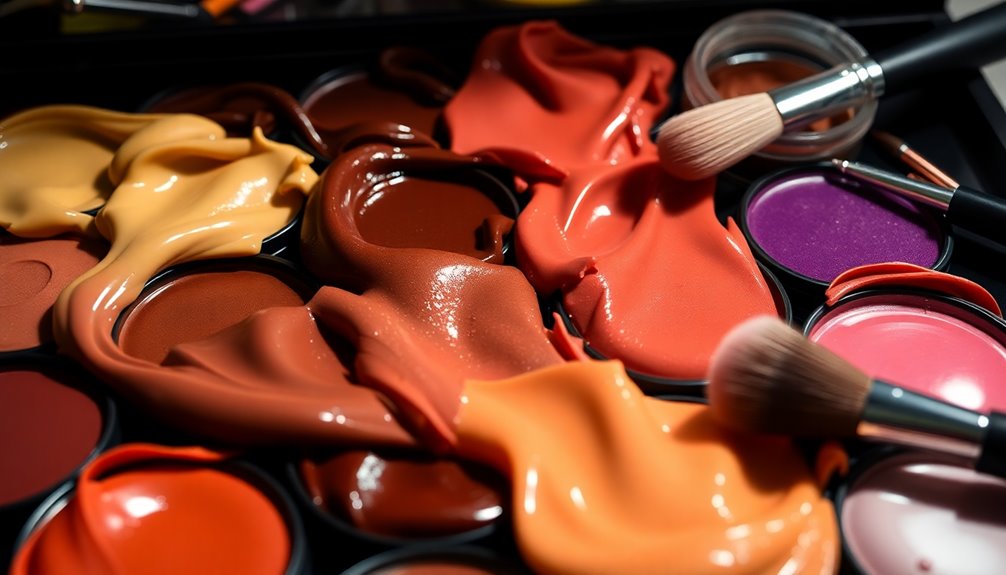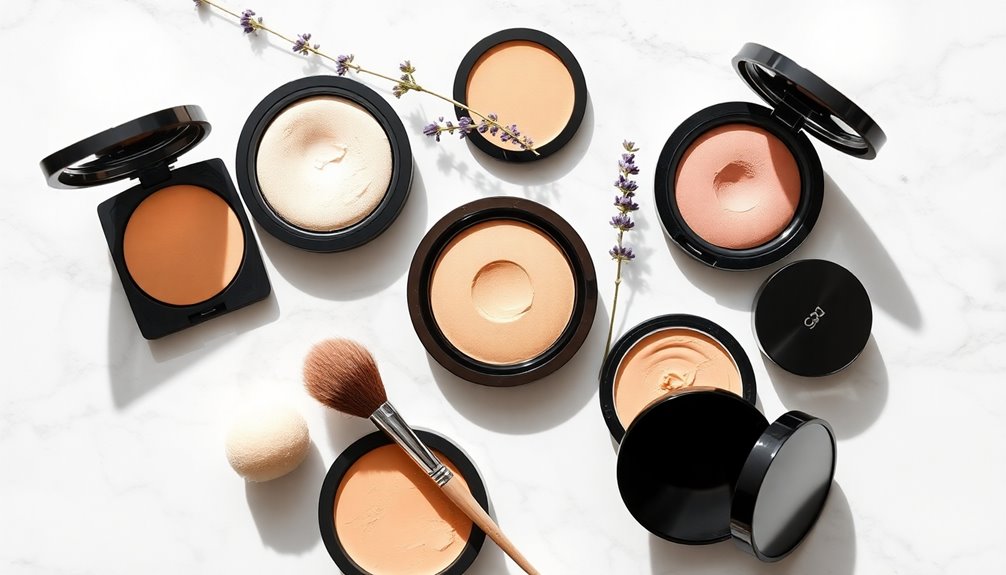In just ten minutes, you can improve your sleep hygiene by creating a calming pre-sleep routine, turning off screens an hour before bed, and dimming lights to signal your body it’s time to wind down. Make your bedroom more comfortable by adjusting the temperature, removing clutter, and using blackout curtains or white noise. Small, consistent tweaks can make a big difference over time—keep going to discover even more simple, effective habits.
Key Takeaways
- Establish a calming bedtime routine by turning off screens and engaging in relaxing activities.
- Optimize your sleep environment with a cool, dark, and clutter-free room for better rest.
- Improve air quality and ventilation to create a healthier, more comfortable sleep space.
- Make small, consistent adjustments like dimming lights or adjusting temperature to enhance sleep quality.
- Use quick, mindful changes to signal your body it’s time to wind down, promoting faster sleep onset.
Simple Steps to Enhance Your Sleep Environment

Getting a good night’s sleep doesn’t have to take hours of effort. In just ten minutes, you can make simple adjustments that markedly improve your sleep hygiene. Start by focusing on your bedtime routines. Establishing a consistent pre-sleep routine signals to your body that it’s time to wind down. Turn off screens at least 30 minutes before bed; the blue light from phones, tablets, and computers can interfere with melatonin production, making it harder to fall asleep. Instead, opt for calming activities like reading a book, gentle stretching, or listening to soothing music. These routines help your mind relax and create a predictable pattern that your body recognizes, making it easier to shift into sleep.
Next, pay attention to your sleep environment. Your bedroom should be a sanctuary dedicated to rest. Keep the room cool, ideally between 60 and 67 degrees Fahrenheit, as a cooler environment promotes better sleep. Make sure your mattress and pillows are comfortable and supportive. Darkness is key—use blackout curtains or a sleep mask to block out external light, which can disrupt your internal clock. Minimize noise by using earplugs or a white noise machine if necessary. The goal is to create a peaceful, inviting space that encourages relaxation. Clearing clutter from your bedroom also helps reduce stress and mental distractions, making it easier to settle down. Additionally, ventilation considerations can improve air quality and temperature regulation, further enhancing your sleep environment.
Incorporate these quick changes into your routine, and you’ll notice how your sleep quality improves over time. Consistency is vital, so try to stick with your new bedtime routines and sleep environment choices every night. Even small tweaks, like dimming the lights an hour before bed or adjusting your room temperature, can make a big difference. These simple adjustments don’t require a lot of time or effort but can lead to more restful, restorative sleep. When your body gets the signals it needs—through predictable routines and a soothing environment—you’ll fall asleep faster and wake up feeling refreshed. Remember, good sleep hygiene isn’t about drastic overhauls; it’s about making manageable, sustainable changes that support your overall well-being. With just ten minutes of mindful preparation, you set the stage for a better night’s sleep and brighter days ahead.
Frequently Asked Questions
How Does Sleep Hygiene Impact Overall Health?
Good sleep hygiene directly impacts your overall health by improving sleep quality and duration. When you create a restful sleep environment and stick to consistent bedtime routines, you reduce stress and boost your immune system. Better sleep helps you stay alert, manage weight, and lowers the risk of chronic conditions. Prioritizing these habits makes a significant difference in how you feel physically and mentally every day.
Can Certain Foods Influence Sleep Quality?
Did you know that consuming sleep-friendly foods can improve your sleep quality by up to 20%? Your dietary choices directly influence your rest; foods rich in magnesium, tryptophan, and melatonin help regulate your sleep cycle. Incorporate sleep-friendly foods like almonds, turkey, and cherries into your diet. By making these dietary choices, you can naturally enhance your sleep, feeling more refreshed and energized each day.
What Role Do Naps Play in Nighttime Sleep?
Naps can impact your nighttime sleep depending on their timing and duration. If you nap too late in the day or for too long, they might make it harder to fall asleep at night. Ideally, keep naps short—around 20 minutes—early in the afternoon. This way, you can enjoy the benefits of rest without disrupting your nightly sleep cycle. Adjust your nap timing and duration to support better overall sleep hygiene.
How Can Stress Affect Sleep Hygiene?
If you think stress won’t impact your sleep, think again. Stress can cause racing thoughts and physical tension, making it hard to fall asleep. To improve sleep hygiene, focus on stress reduction through relaxation techniques like deep breathing or meditation. These methods calm your mind and body, helping you unwind. Consistently practicing stress management fosters better sleep habits, ensuring you wake up refreshed and ready for the day.
Are Sleep Aids Effective for Improving Sleep Habits?
Sleep aids can be effective temporarily, helping you fall asleep faster or stay asleep longer. However, you should be cautious of medication dependency, which can develop with prolonged use. Some sleep aids work mainly through placebo effects, making you believe they’re helping when they might not be. For long-term improvements, focus on good sleep hygiene habits, rather than relying solely on medication, to build healthier sleep patterns.
Conclusion
Just like tuning a musical instrument guarantees it’s in perfect harmony, a quick 10-minute tweak can transform your sleep. Imagine your bedroom as a symphony, where each element plays a part in creating peaceful nights. By making these simple adjustments, you set the stage for restful slumber. Remember, small changes—like dimming the lights—are like tuning the strings, turning your sleep environment into a sanctuary of serenity, so you wake up refreshed and ready to perform.










